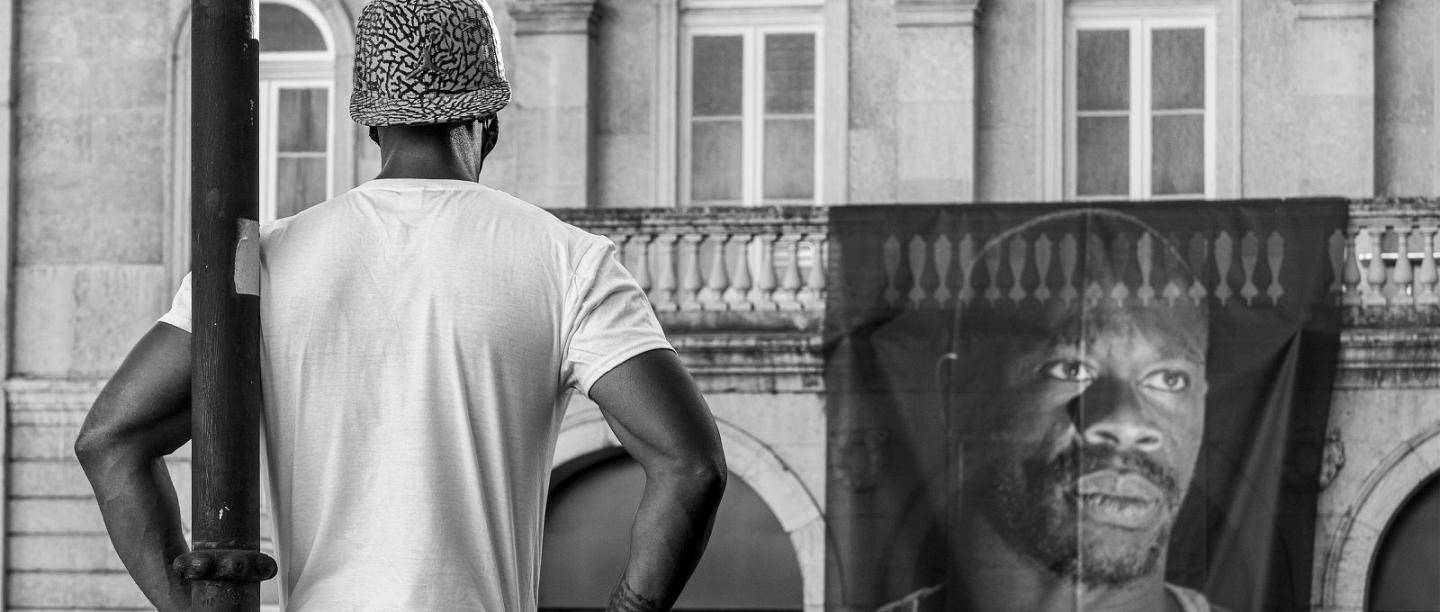EQUAL TIMES (11/9/2020)
On a sunny Saturday in July, Bruno Candé sat, as he did every day, on a bench with his labrador, on a busy street in the Lisbon suburb of Moscavide. At around one in the afternoon Evaristo Marinho, 76, approached Candé with a gun, opened fire and shot him four times at close range, killing him in exactly the same spot where, just a few days earlier, he had told Candé to “go back” to where he came from.
Born in Lisbon to parents from Guinea-Bissau, 39-year-old Candé was where he came from. A father to three small children, he was passionate about acting and belonged to a Lisbon-based theatre company. He had recently shared plans to write a book. But none of that mattered to Marinho, a colonial war veteran and retired nursing assistant. Days before the shooting, several witnesses say he attacked Candé with racist slurs, telling him to “go back to the senzala [slave quarters]” and shouting degrading insults directed at his mother and other Black women.
It appears that the harassment may have been ongoing: “Weeks before he had complained to a friend that he was being insulted and threatened,” says Candé’s niece Andreia Araújo. “But he felt he couldn’t do anything about it because the man was old.” According to witnesses, Marinho threatened to kill Candé with “guns from the colonies” three days before the murder on 25 July, after they had an argument over the actor’s dog. “But it wasn’t just about the dog,” Araújo tells Equal Times. She is sure that her uncle was murdered because of the colour of his skin. “What happened to Bruno has happened to many before. And if we don’t do anything, it will continue to happen. We want justice,” she says firmly.
Candé’s murder has sparked a major debate on racism and the afterlife of colonialism in Portugal, but not everyone is convinced of the motives behind the murder of a Black man by a white man who had hurled racial slurs. Denial has been widespread.
A police spokesperson initially dismissed the possibility of racist motivations, saying that none of the witnesses mentioned racist insults. The police were forced to withdraw this statement after journalists and activists collected multiple testimonies indicating the exact opposite. One of Portugal’s most respected newspapers published a profile of the suspect, portraying him as a bad-tempered retiree who used to fight “with everyone”, someone who suffered from post-traumatic stress from the colonial wars Portugal fought against African independence movements over four decades ago. (…)
Read more: https://www.equaltimes.org/the-murder-of-bruno-cande-has-put#.X13o9BBKjIU
Photo by Marlene Nobre
